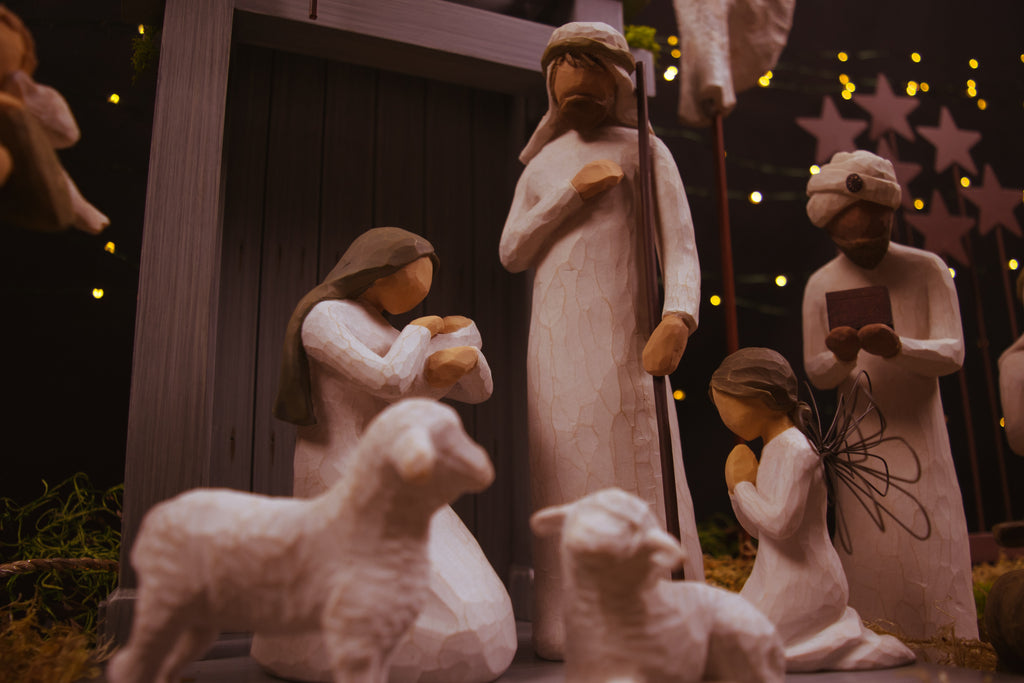Christmas is just around the corner! It seems that announcement comes a little earlier every year. Usually when the fruit mince pies hit the shelves. In August. That’s a good bit of lead time, but it can trigger a wide range of feelings, from anticipation to pure exasperation. And while some years I find myself a few clicks towards the latter end of that scale, it grieves me every time I hear Christmas referred to as the ‘silly season’. A time that should be marked by true peace, hope and joy referred to with irreverence, exhaustion and tension. The celebration of a moment first announced with heavenly glory and angelic song, now heralded by a looming sense of overcommitment and tinny Christmas carols that feature more Santa than Saviour.
Here are a few ways that we can offer an alternative — the alternative — and reclaim the sacredness of Christmas.
Observe Advent
Christians all over the world observe the four weeks leading up to Christmas as a time to remember the coming of the Messiah. Christ’s arrival met the collective waiting of a nation, stretched out over generations. Advent invites us to position ourselves to wait, to anticipate and set our gaze on the One who has and will fulfil every longing. So many things will demand your attention in the weeks leading up to Christmas, and carving out space and time for Advent can help keep your heart and mind anchored in the real reason for the season.
Consider how you can observe Advent this year. Maybe it’s daily prayer or scripture reading (check out the Advent plans on the Bible app, or use the lectionary), fasting something that causes distraction or increases stress (social media, anyone? Scrolling the news?), or a simple creative activity. Some traditions light candles each week; I know families who have used a ‘random acts of kindness’ Advent calendar; others have attended immersive nativity events. One Advent I illustrated a section of the lyrics of Handel’s Messiah each day. The words, which are drawn straight from scripture, took me on a significant journey and gave me a fresh revelation of the sweeping story of salvation in Jesus.
Set boundaries with consumerism
It’s actually very hard to avoid the hustle of Christmas shopping. From finding the perfect gift for everyone (don’t forget the kids’ teachers. And your neighbours. And the Kris Kringle with your book club.), to refreshing your decoration stash, to the 4 trips down to the shops on Christmas Eve to get that ingredient you forgot for your trifle… spending and shopping can absolutely dominate our headspace and schedule in the lead up to Christmas.
What boundaries can you set to help reduce the grip of consumerism this Christmas? You could simplify your gift list by suggesting a Secret Santa type arrangement so you don’t have to choose something for every family member. Purchase your gifts online so you don’t need to spend time and risk unnecessary purchasing wandering the shops (but also set a time limit for your online shopping so you don’t spend hours browsing). If you're a parent, chat with your kids about simplicity and generosity, and set shared expectations around gifts. Tearfund’s Useful Gifts can give you a few wins in this area: prompt discussions with the kids around ‘need’ vs. ‘want’, find a perfectly-suited gift for everyone in one spot, support life-giving change in communities around the world, and reduce waste – no single-use plastic here!
Prioritise relationship
With all the effort that goes into creating special moments with the ones we love, sometimes meaningful connection gets lost amongst it all. We risk exhausting ourselves saying yes to every end of year catchup (now that we can have them again!) and squeezing in all of those ‘we should get together before the end of the year!’ coffees. It’s okay to decline an invitation — or suggest lining up a time in the new year! Another way to make sure relational connection isn’t lost is to write your cards before you buy your gifts. Along with a message, I like to write a list of some of the highlights from the year in relation to the recipient — achievements, special memories, holidays, significant moments. It’s a good way to remember and honour that person.
Pray into the difficult relationships that accompany Christmas — maybe there are estranged relationships that surface, or weird family dynamics that cause tension at family gatherings. Perhaps there is grief or loneliness as you remember someone who isn’t there. Where you find yourself anxious about relationships, bring them before the Lord. Hold that person before the throne of grace and ask God to make you a channel of his peace this Christmas.
Participate with the Prince of Peace
Peace on earth. More than just a sentimental line on the front of a Christmas card, peace on earth accompanied glory in the highest when Jesus was born. Isaiah called Christ the Prince of Peace, alongside a cascade of other titles that hinted at the redeeming transformation he would bring to humanity and creation. This ministry of peace didn’t end when Jesus’ time on earth did: it continues today through the Holy Spirit and anyone who says yes to his kingdom. I can’t think of anything more resistant to silliness than living out the kingdom of God. What opportunities are there for you to participate with the Prince of Peace today? How can you practice radical generosity? Where can you serve humbly? Who can you invite around your table in gracious hospitality?
The arrival of Emmanuel came loaded with long-awaited hope and promise and, from the get-go, shifted power and lifted the lowly. It was good news when the shepherds heard it in the fields near Bethlehem, and it’s still good news today. Silly can find another season — this one is too sacred.
